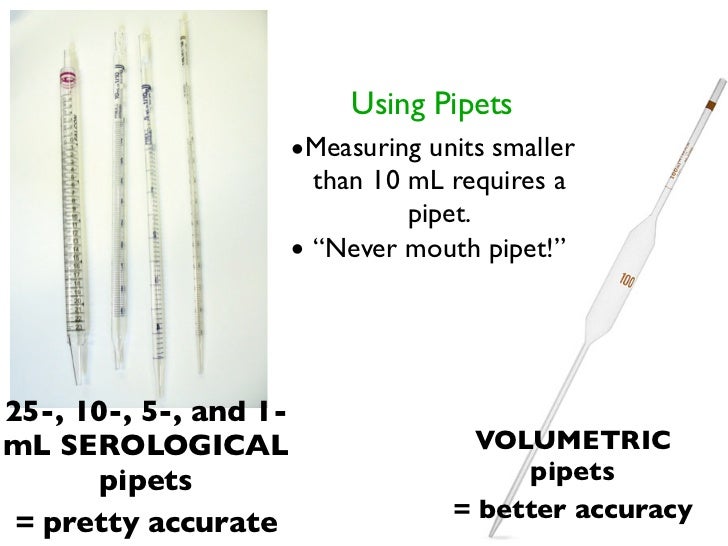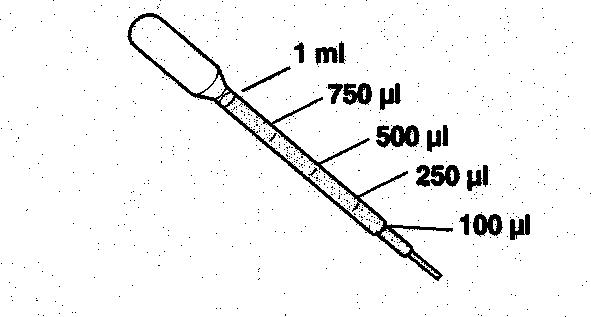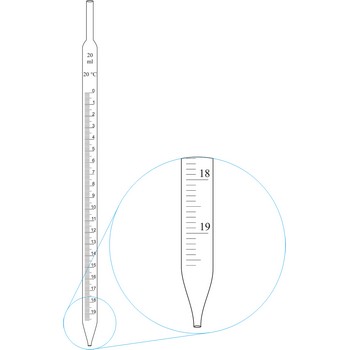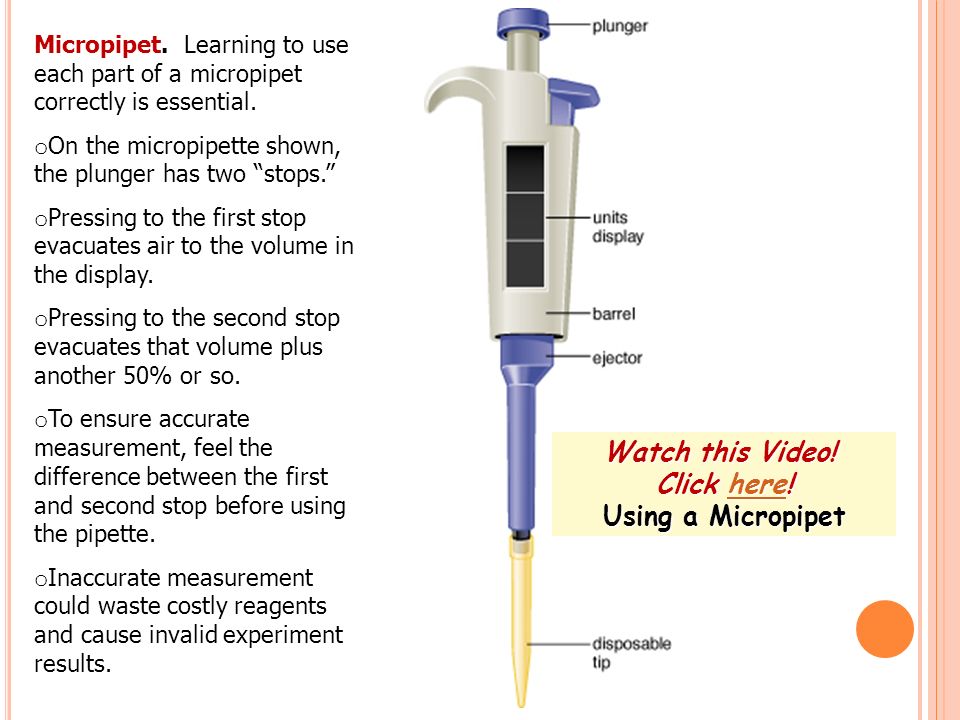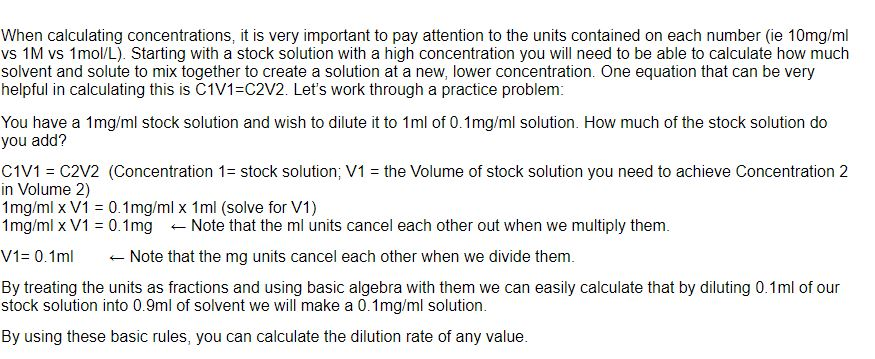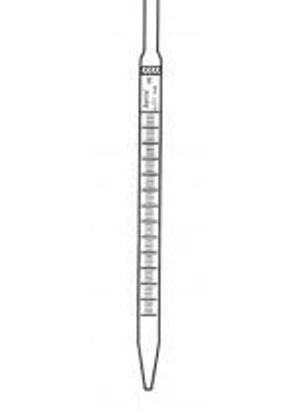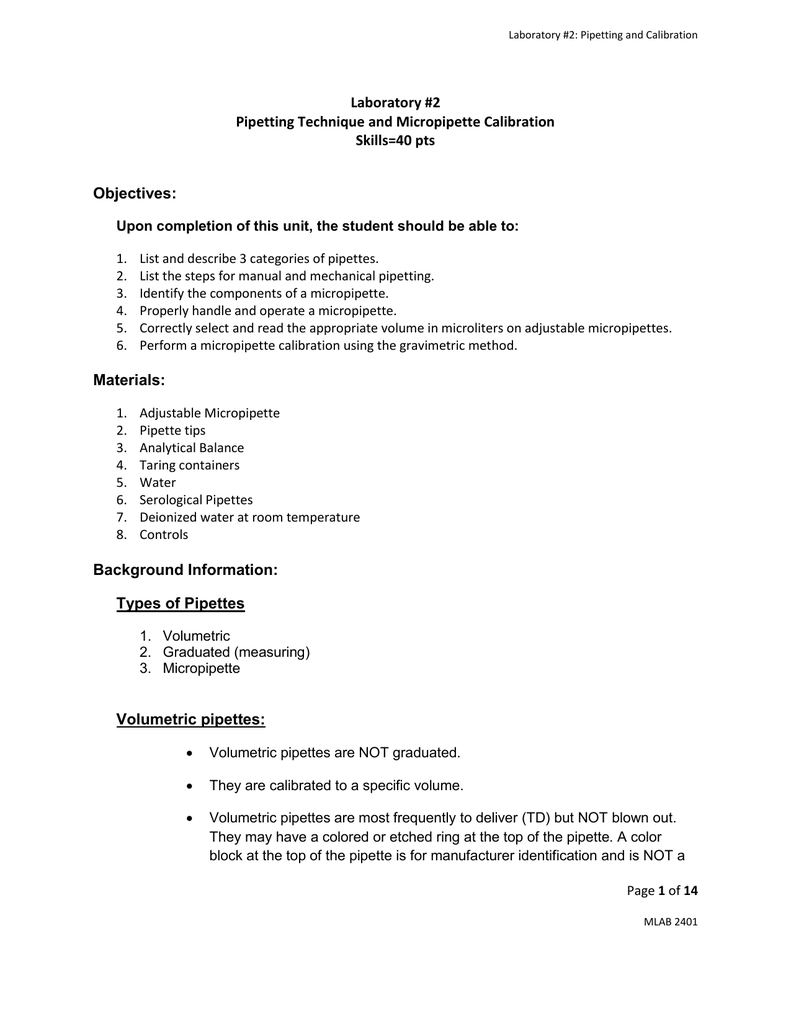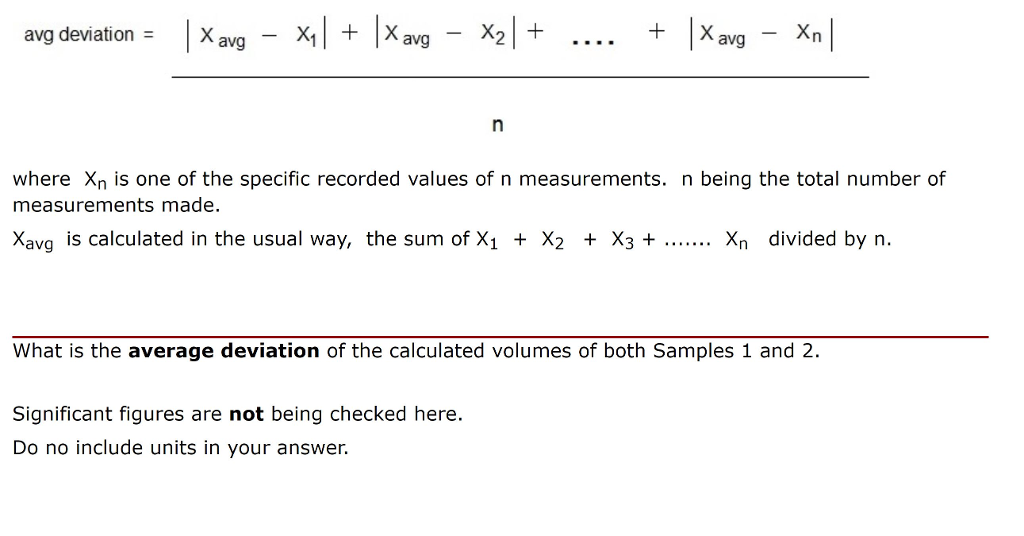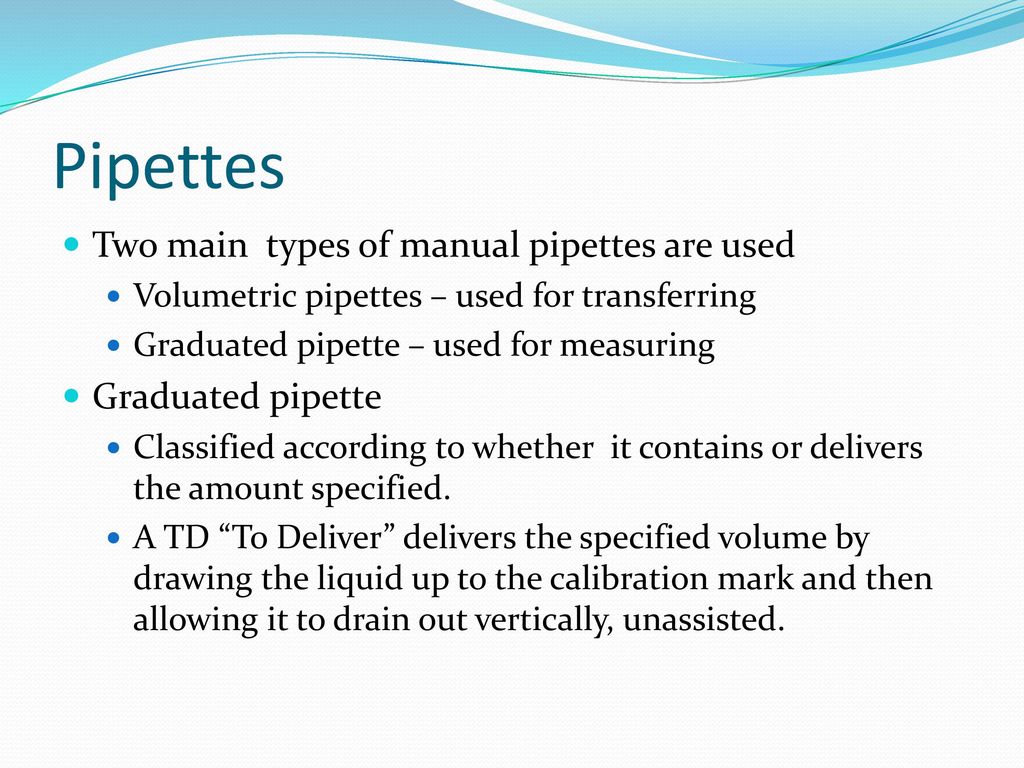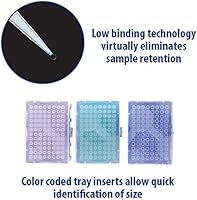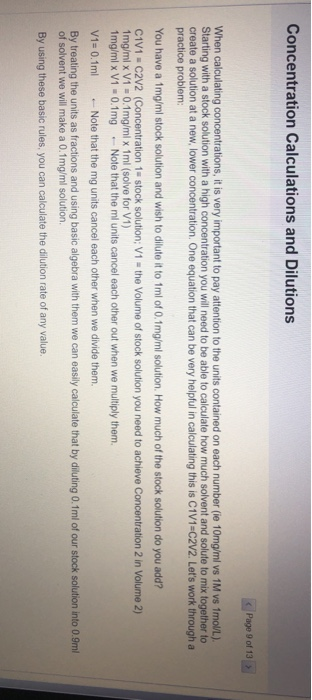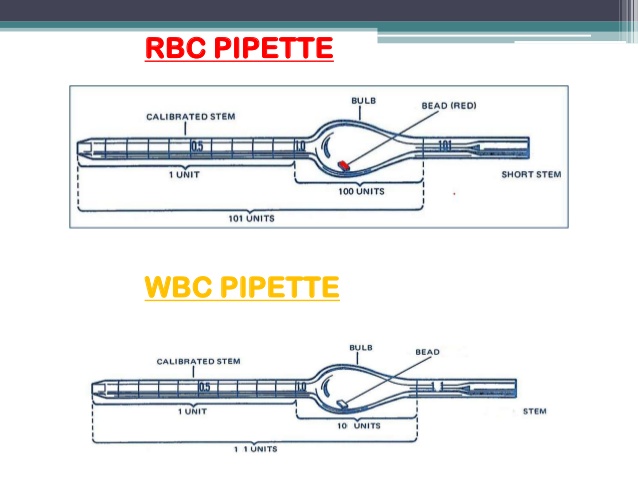Pipette Measurement Unit
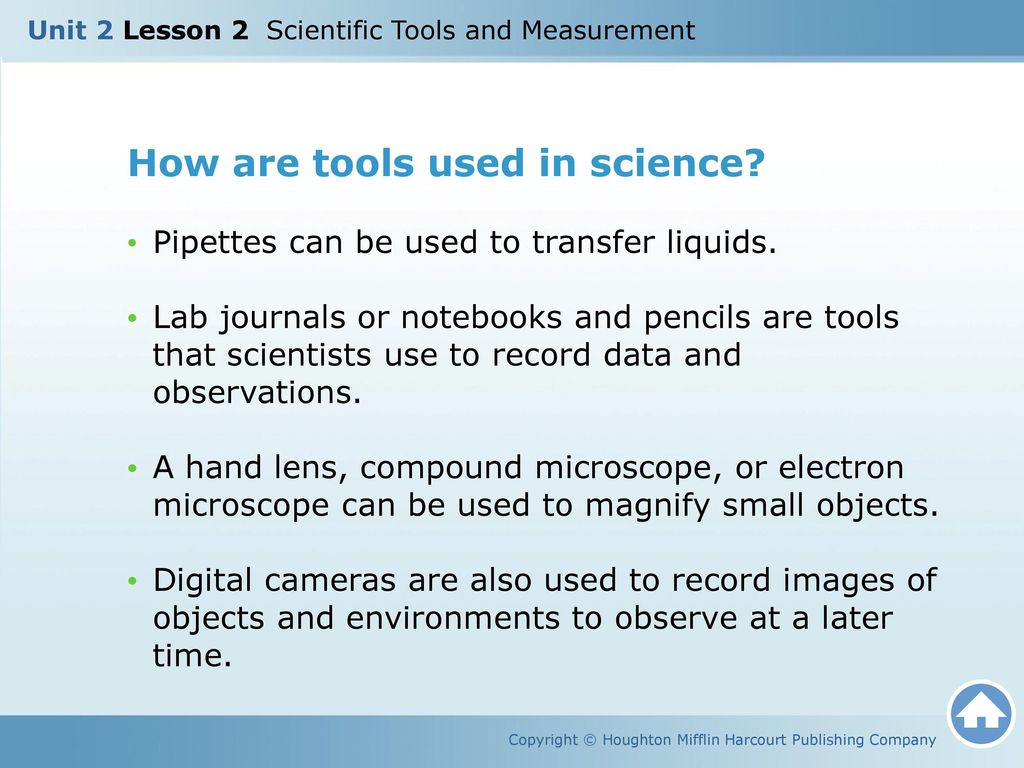
A pipette is calibrated with a series of graduation lines to allow the measurement of more than one volume.
Pipette measurement unit. You may use microliters or milliliters as the units of volume in your lab notebooks and lab reports but be careful to always state the volume unit that you are using. Pipette and micropipette units become familiar with metric units of measurement and their conversions. 20 0 ml pipettes can deliver 20 0 ml. Many pipette types work by creating a partial vacuum above the liquid holding chamber and selectively releasing this vacuum to draw up and dispense liquid.
On a p20 the most you can measure is 20 so the top digit is 10 s of microliters. They come in several sizes and shapes with various features and functions. To make these precise measurements the molecular biologist uses a micropipette. Pipettes help scientists doctors and researchers perform experiments and tests by accurately measuring liquid volumes.
Micropipettes are precision instruments that are designed to accurately and precisely transfer volumes in the microliter range. Some pipettes are graduated some are not. Pipettes are small tools used in laboratories for measuring and transferring small amounts of liquid. Pipettes come in several designs for various purposes with differing levels of accuracy and precision from single piece glass pipettes to more complex adjustable or electronic pipettes.
Micropipette and the metric system purpose. A pipette is a laboratory tool commonly used in chemistry biology and medicine to transport a measured volume of liquid often as a media dispenser. Td 20oc or to deliver 20oc which indicates the pipette will deliver the measured amount of water if the temperature is 20o centigrade. The liter is the metric volume standard and one microliter μl is one millionth of a liter.
Each pipetman has a three digit volume indicator but the slightly tricky part is that the digits mean different things depending on whether you re looking at a p20 a p200 or a p1000. For larger volumes you would use a graduated cylinder and for smaller volumes a micropipettor is more convenient. Pipettes come in various sizes. Use them for measuring volumes between 1 ml and 10 ml.
Again its not really rocket science. For comparison between data sets with different units or widely different means one should use the coefficient of variation instead of the standard deviation. Recall the relationships between volume units. Prefixes apply to both liquid and dry measurements examples 1 ml 001 liter 1x10 3 1 000 ml 1x103 1 liter 1 μl 001 ml 1x10 3 1 000 μl 1x103 1 ml 1 μl 000001 liter 1x10 6 1 000 000 μl 1x106 1 liter.
Micro pipettes can deliver microlitres. Work with dna and enzymes frequently involves measuring very small volumes often in the microliter range. Measuring with pipettes graduated pipettes made of glass or plastic are used for accurate measurement of liquid volumes.


